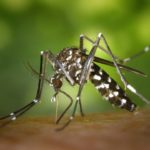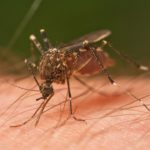
Shift in Malaria Cases According to the latest estimates from WHO, many countries with ongoing malaria transmission have reduced their disease burden significantly. On a global scale, the rate of new malaria cases fell by 21% between 2010 and 2015. Malaria death rates fell by 29% in the same 5-year period. The World Health Organisation (WHO) has set a global
Read More …

Delhi is Suffering! Chikungunya and dengue cases in New Delhi had tapered off by the first week of December last year, ending the vector-borne disease season in the city that witnessed its worst chikungunya outbreak in the last 10 years. Blame it on the Climate Change but because of untimely rains last week, the Capital city is dealing with the
Read More …

Malaria Prevention – Prevent breeding of mosquitoes in surroundings, Maintain proper hygienic conditions.
Malaria Treatment Using Home Remedies, Yoga, And Diet – Foods to be taken: As sweating and fever cause considerable loss of fluid, drink plenty of watery substances like soups, milk, lime juice, etc. Water with some salt and sugar is also excellent. Coconut water may be particularly beneficial in reducing vomiting and replacing the loss of fluid and electrolytes. Individuals having vitamin A deficiency are more likely to contract malaria hence foods rich in vitamin A such as milk, fruits (mangoes, papaya) and vegetables (carrots, tomatoes, drumstick, amaranth, spinach, pumpkin) should be taken.

Malaria Symptoms – High fever, Fatigue, Headache, Muscle aches, Abdominal discomfort. Malaria Causes – A bite from a parasite-infected mosquito causes malaria..

Malaria is a disease caused by an infection of the red blood cells with a tiny organism. This is a mosquito borne infectious disease. Malaria is contracted by the bite of mosquitoes. When an infected mosquito (the Anopheles mosquito) bites you, it injects the malaria parasites into your blood.
 Shift in Malaria Cases According to the latest estimates from WHO, many countries with ongoing malaria transmission have reduced their disease burden significantly. On a global scale, the rate of new malaria cases fell by 21% between 2010 and 2015. Malaria death rates fell by 29% in the same 5-year period. The World Health Organisation (WHO) has set a global Read More …
Shift in Malaria Cases According to the latest estimates from WHO, many countries with ongoing malaria transmission have reduced their disease burden significantly. On a global scale, the rate of new malaria cases fell by 21% between 2010 and 2015. Malaria death rates fell by 29% in the same 5-year period. The World Health Organisation (WHO) has set a global Read More …
 Shift in Malaria Cases According to the latest estimates from WHO, many countries with ongoing malaria transmission have reduced their disease burden significantly. On a global scale, the rate of new malaria cases fell by 21% between 2010 and 2015. Malaria death rates fell by 29% in the same 5-year period. The World Health Organisation (WHO) has set a global Read More …
Shift in Malaria Cases According to the latest estimates from WHO, many countries with ongoing malaria transmission have reduced their disease burden significantly. On a global scale, the rate of new malaria cases fell by 21% between 2010 and 2015. Malaria death rates fell by 29% in the same 5-year period. The World Health Organisation (WHO) has set a global Read More …
 Delhi is Suffering! Chikungunya and dengue cases in New Delhi had tapered off by the first week of December last year, ending the vector-borne disease season in the city that witnessed its worst chikungunya outbreak in the last 10 years. Blame it on the Climate Change but because of untimely rains last week, the Capital city is dealing with the
Delhi is Suffering! Chikungunya and dengue cases in New Delhi had tapered off by the first week of December last year, ending the vector-borne disease season in the city that witnessed its worst chikungunya outbreak in the last 10 years. Blame it on the Climate Change but because of untimely rains last week, the Capital city is dealing with the